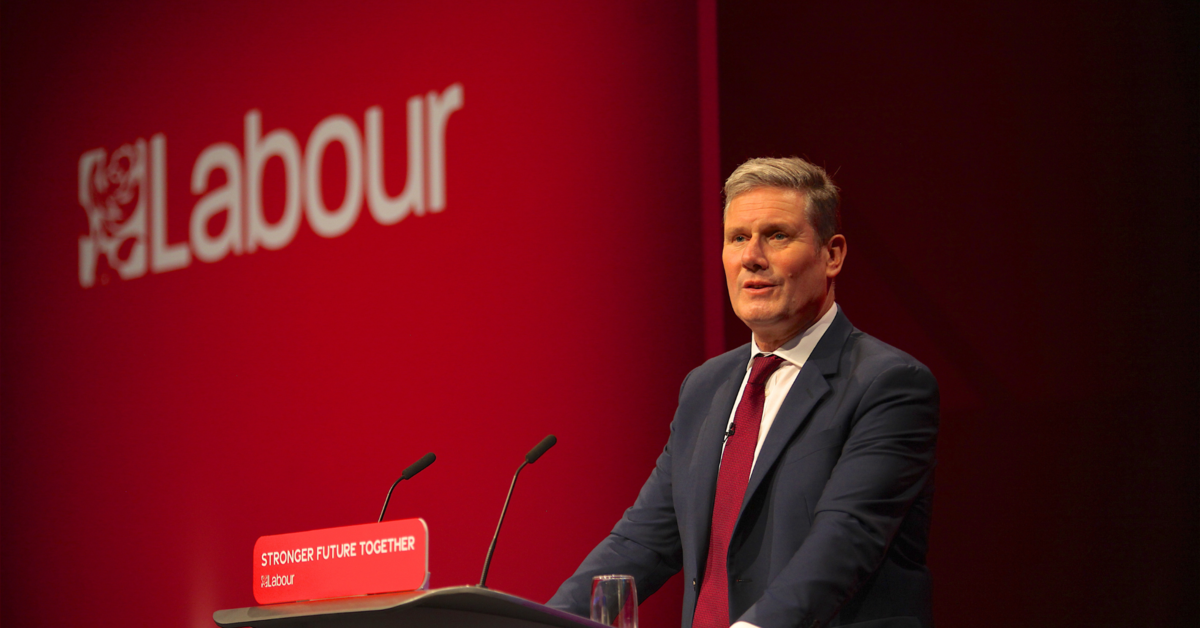At a Glance
Today, Labour leader Keir Starmer set out his “five bold missions for a better Britain” to supporters in Manchester:
- Securing the highest sustained growth in the G7
- Making Britain a clean energy superpower with zero carbon electricity by 2030
- Building an NHS fit for the future
- Breaking down the barriers to opportunity at every stage by reforms to schools and education with a new skills agenda
- Making Britain’s streets safe by reforming the police and justice system
With several polls suggesting Labour could well be on its way to win the next General Election, this document is important because we’re understanding more about what a Labour Government could mean for economic development and regulatory policies.
Labour’s preparations must now focus on how to deliver these objectives, therefore, getting a hearing with Labour will mean explaining issues in the context of these five national missions and Labour’s industrial strategy.
Labour leader Keir Starmer MP has set out his “five bold missions for a better Britain” that will form the bedrock of Labour’s campaign.
Telling a packed audience of party supporters in Manchester today that he would put an end to “sticking plaster politics,” he said the party’s focus in government would be on:
- Securing the highest sustained growth in the G7
- Making Britain a clean energy superpower with zero carbon electricity by 2030
- Building an NHS fit for the future
- Breaking down the barriers to opportunity at every stage by reforms to schools and education with a new skills agenda
- Making Britain’s streets safe by reforming the police and justice system
Commentators in the Westminster village have often bemoaned what they see as either Labour’s lack of ambition or lack of policy detail. While nothing in today’s speech should come as a surprise to those who’ve been paying attention to Labour’s journey over the last three years, this now begins to give shape to the party’s offer to the country.
These are transformative missions: recasting our energy system, turning round the health service, and crucially reshaping our economic model, which has been lumbering since the financial crisis 15 long years ago.
Starmer’s approach proclaims itself as “unashamedly long term.” Talking of the challenges the country faces, the Labour leader said, “The more I delve into these challenges, the more I can see things that are simply not working…Things that could be sped up, joined up, given direction, made to work better.”
And so the outcome of that is a series of national missions. Starmer said a “mission-driven government is a different way altogether. Not state control or pure free markets, but a genuine partnership, sleeves rolled up, working for the national interest.” The focus on how Labour will govern — rather than simply a series of individual policy announcements — is what makes this so important.
These missions are a powerful guide to what a Labour Government will focus on. The siren voices still calling for more detail should read the document closely, for it amounts to a powerful redirection of the state to focus across government on big national challenges.
Political leadership is about choices, so it’s notable that while this document is the bedrock of a campaigning manifesto, it focuses on outcomes rather than straightforward focus-grouped policies or issues that appeal to internal stakeholders. The absence of some retail issues like building more houses, issues important to the Corbynite left like nationalization, or the absence of “culture war” issues like immigration, speaks to that serious attempt to address what Starmer views as the overarching national challenges.
Starmer’s document makes clear that his government will work very differently. Government will be organized around this shared vision and delivery will be directed by “cross-cutting mission boards.” He’s calling time on the “departmentalitis” and cabinet committees that sometimes end up putting Whitehall politics ahead of government delivery.
He’s also telling business that it will play a part in shaping Britain’s economic future. Things will not be done to business, instead it will be in partnership with government. But the key part of that partnership is a genuine focus from all sides on the long-term interests of Britain and an understanding that a Labour government will not simply pick up risk for businesses unwilling to invest in innovation, growth, and skills.
It has previously been reported that Labour is putting together a “preparation for government” team and it is now clear that these preparations will focus on how to deliver these objectives. According to insiders, Labour is preparing “green papers” for the civil service on the challenges it wants to address and how it will expect the machinery of government to deal with them.
In practical terms, what this means for economic development and regulatory policies is also becoming clear. Jonathan Reynolds, the Shadow Business Secretary and Starmer’s envoy to business, recently told an EGA roundtable that the party’s industrial strategy is the core of the approach to growth and innovation.
The party’s journey so far has been a remarkable one. In just under three years, Starmer has taken Labour from the bowels of a historically enormous defeat to a position now where they are typically well over twenty points ahead in the polls — a position where many are thinking what life with Starmer as Prime Minister may be like. Getting a hearing with Labour will mean explaining issues in the context of these five national missions and Labour’s industrial strategy.
You can read Labour’s “mission-driven government” document here and Labour’s industrial strategy here.



